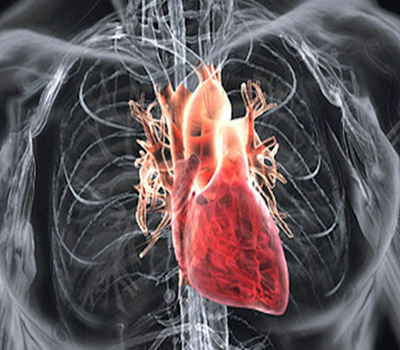The Transplanted Heart

Malaz Al Zu’abi
There had to be a celebration that matched the magnitude of the event. It was the first heart transplant surgery the country witnessed in its history, along with the most prominent example about the quantum leap the world of medicine had achieved during the time of Mr. President. In attendance that morning were representatives from the three main newspapers, Tishreen, Althawra, and Albaath, a representative from Syrian Arab News Agency (SANA), a news team from the Syrian Arab TV Channel, a Damascus Radio reporter, Robert Fisk, and a crowd of Syrians.

At six o’clock the same evening, the press office in the Ministry of Health distributed the following announcement:
“Under the generous patronage of the health caregiver, Mr. President Hafez al-Assad, and under the instructions of the Health Minister, the first heart transplant surgery will be done tomorrow morning for a citizen of the Syrian Arab Republic. This comes as an unprecedented national accomplishment and a product of the glorious Corrective Movement (Al Haraka Al Tashihya).”
The surgery had been delayed for many days due to the difficulty of finding a donor of a sound heart. This was sorted out by torturing to death a detainee from the Syrian coast from a communist background. The torture was inflicted by a tormentor from Deir Alzor and a jailer from Daraa in a prison which was supervised by Mustafa Tlas with a direct approval from Abdulhaleem Khaddam. Afterwards, Mahmoud Alzu’abi was made aware of that. Ali Duba, Ali Haidar, Ali Khuzam, Ali Aslan, Ali Habib, and Ali Aldeek were completely unaware of the incident of torture and violations. (Of course, Rifaat Alasad was not aware of all of those violations, either.)
Once the detainee breathed his last, his heart was preserved, and then the date for the surgery was set. The medical team was composed of a group of the most skilled Syrian doctors, who graduated from Bucharest, Moscow, Kiev, Sofia, and Eastern Germany. They came with assistance from a group of nurses (Mercy Angels) who wore sensational make up. Then they chose the military hospital and butchery, Tishreen, as the state institution where this unprecedented national accomplishment would take place. The beneficiary patient who received the surgery was a policeman from Idlib province.
They had already sterilized the patient’s room and brought clean beddings for his bed when they brought the bucket, also sterilized and filled with chlorine, that contained the heart. President Assad watched the live broadcast surgery for a couple of minutes then asked the senior surgeon, who had put the scalpel aside, a question: “What can you see while you’re looking at this Syrian transplanted heart?”
The senior surgeon replied, “As a matter of fact, I am really happy and overjoyed because I can see a beating Syrian heart. I can see it as it is in reality wonderful and beautiful.” Then, he continued talking about his observations honestly to Mr. President, “I can see its beautiful and wonderful arteries. I can see its beautiful red blood, and I can see its curves. I can see the lofty right ventricle rising to a great height and our beloved left atrium. I can see that every spot in it is beautiful and wonderful. I am immensely happy about this scene.” The senior surgeon resumed work after the end of the live broadcasting and got busy looking for the scissors a nurse had lost somewhere in the patient’s body. After a couple of hours, they announced that the surgery was completed successfully while the crowds who had gathered spontaneously started cheering and shouting that they were ready to sacrifice their lives and blood for Hafez. On the following morning, the Idlibi policeman’s family took their deceased to the graveyard.



